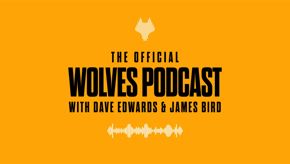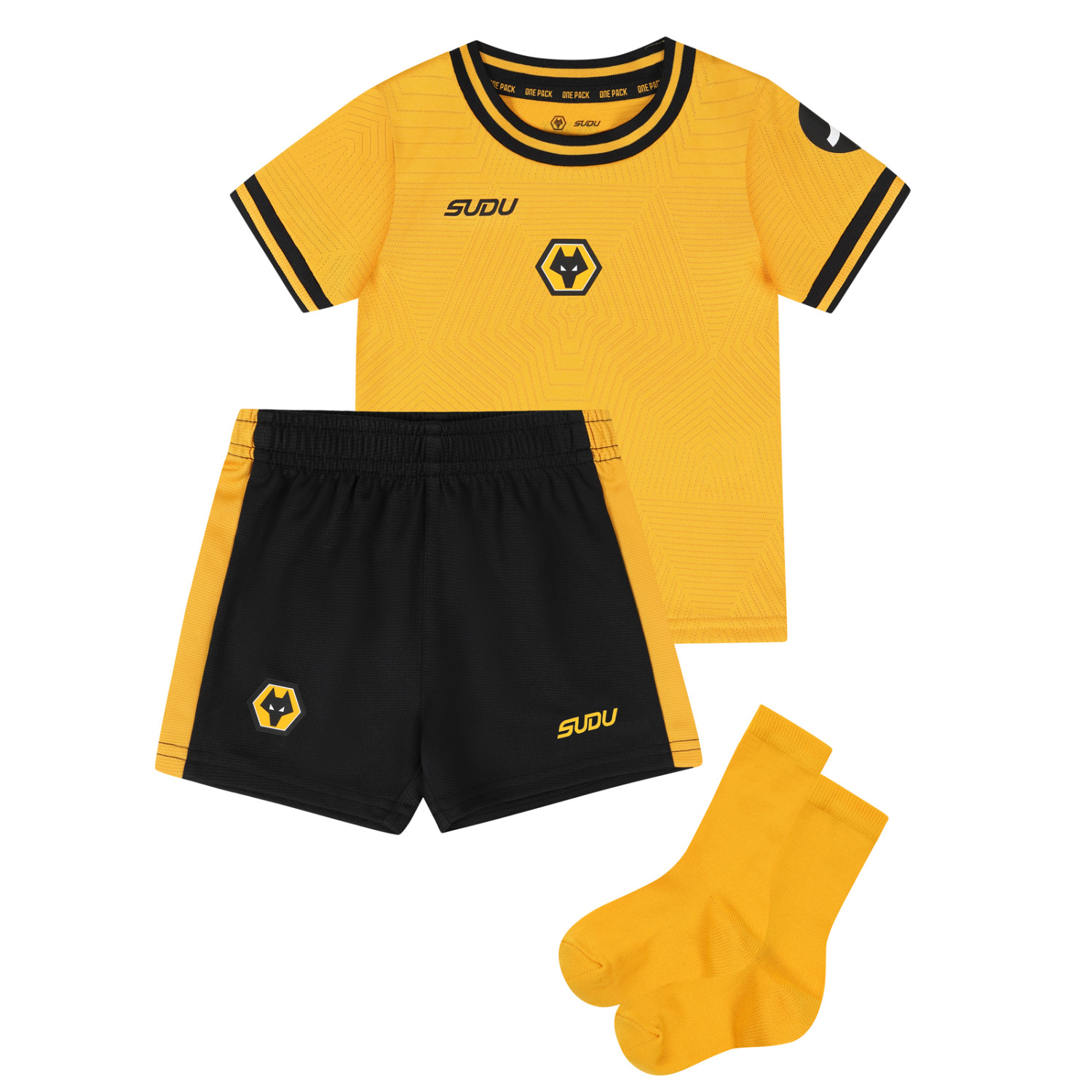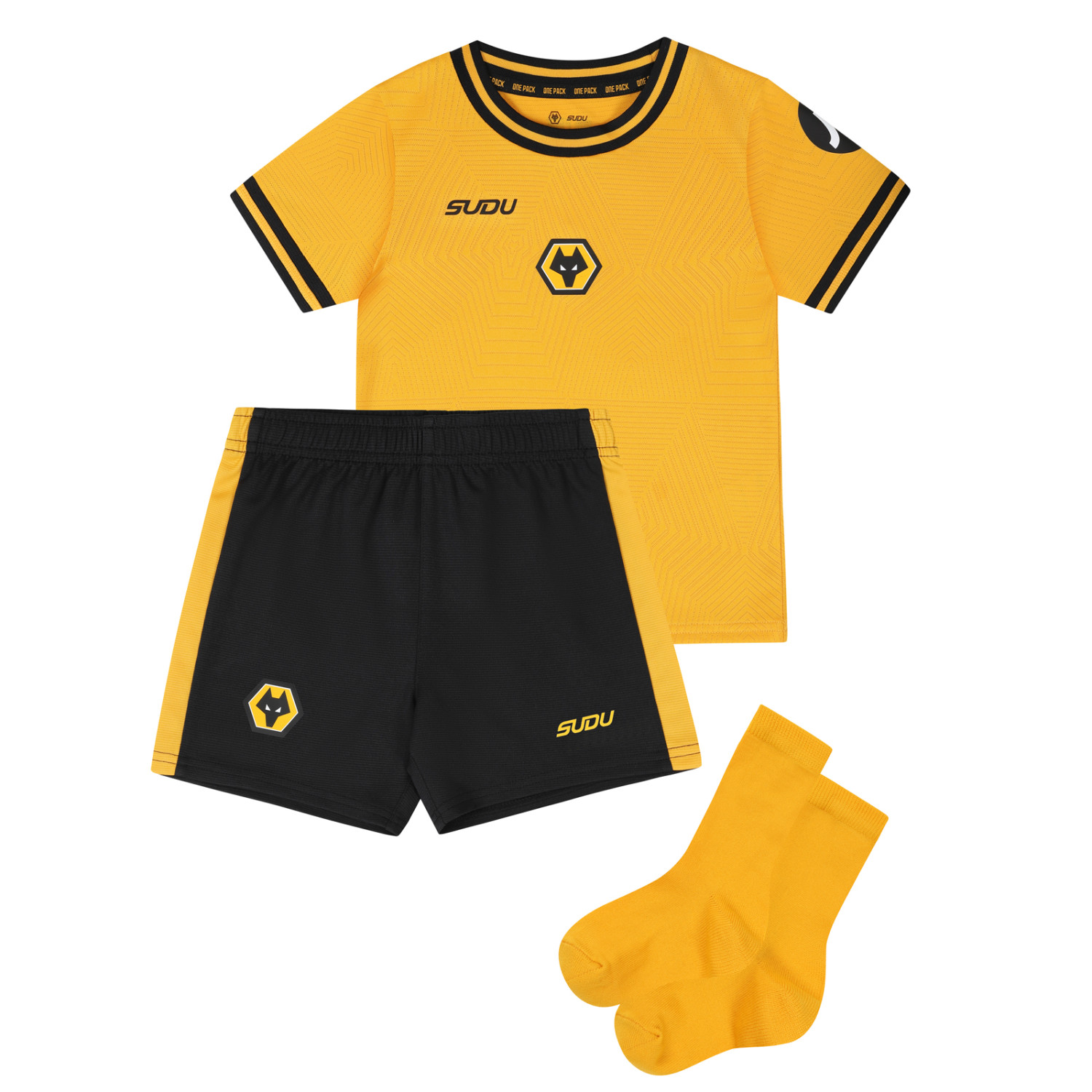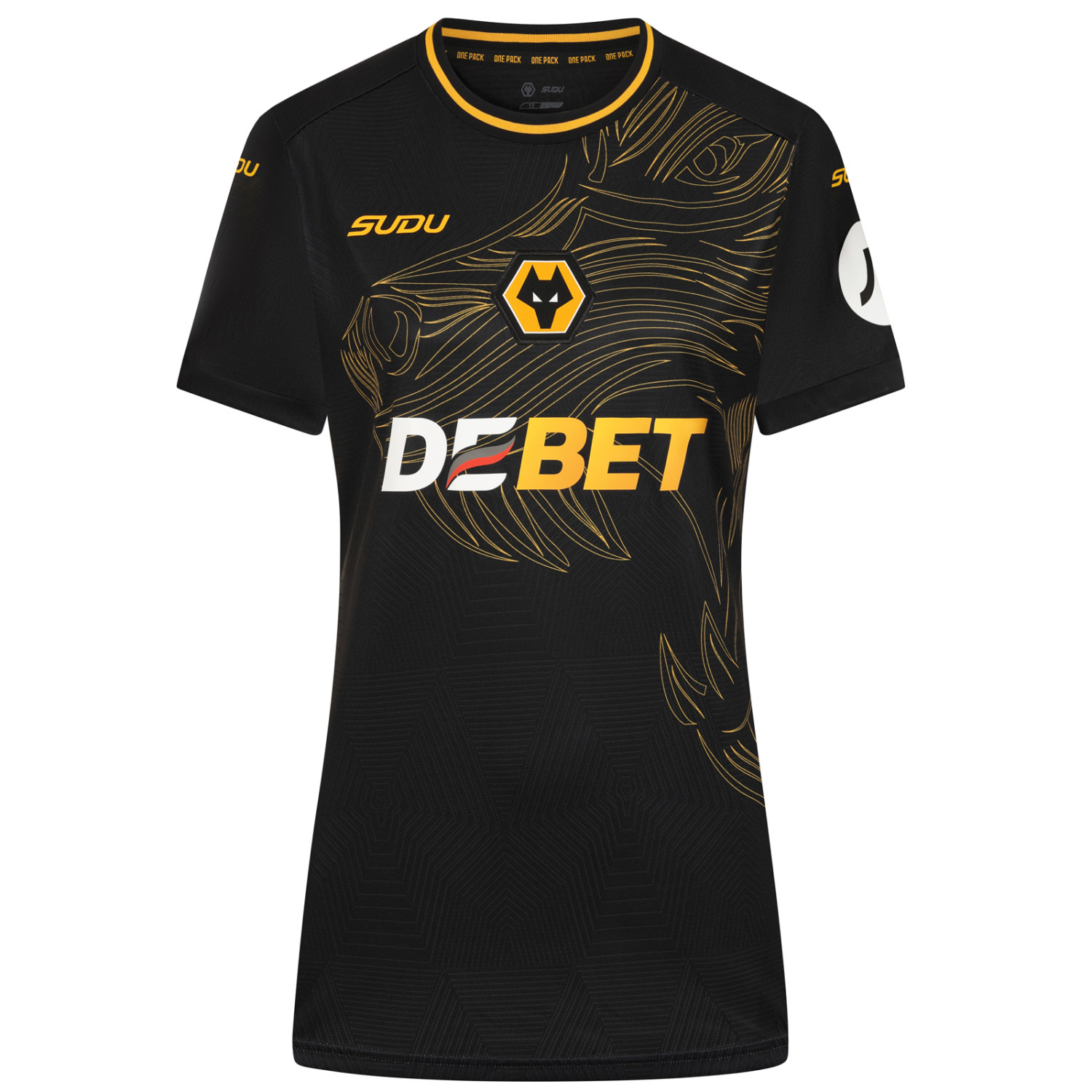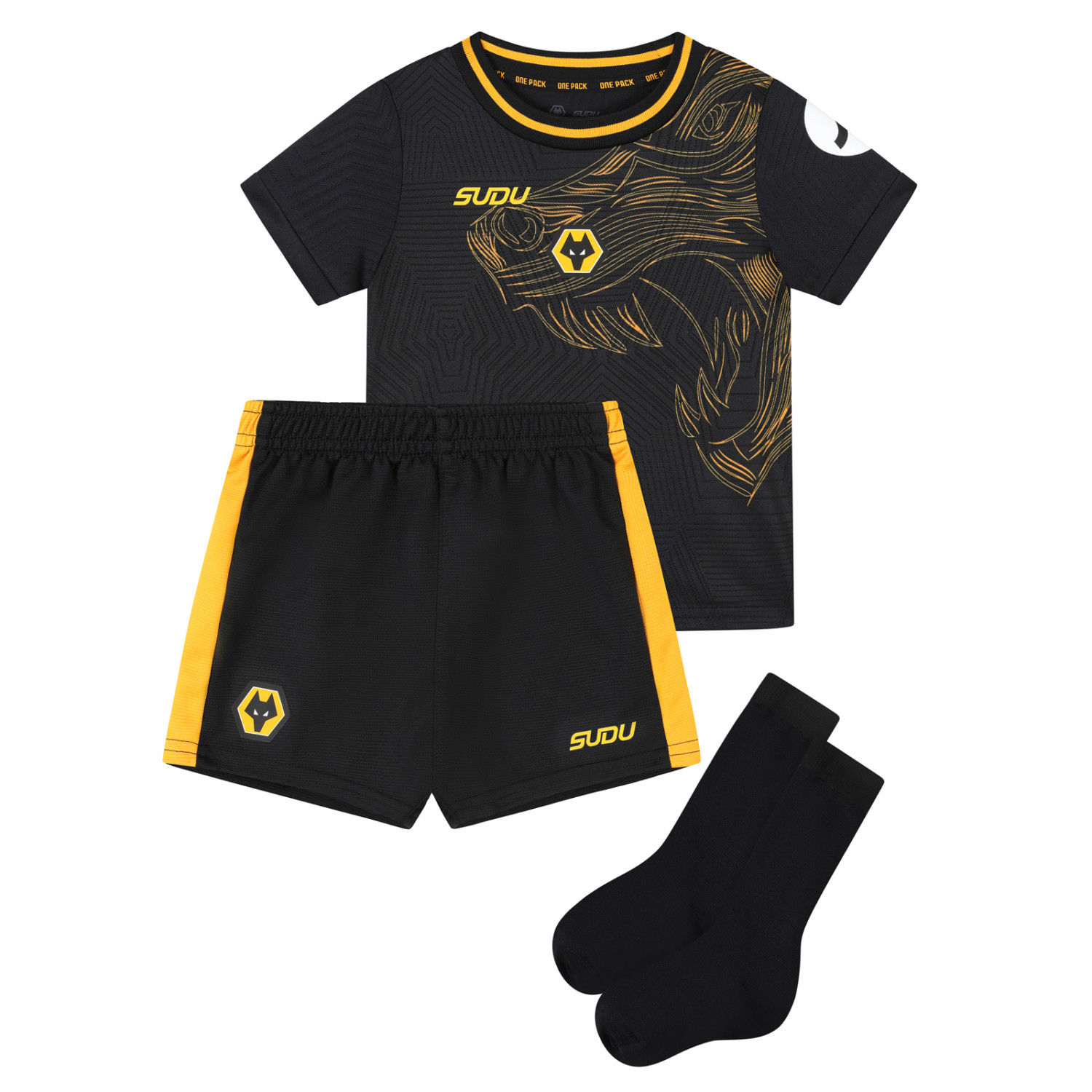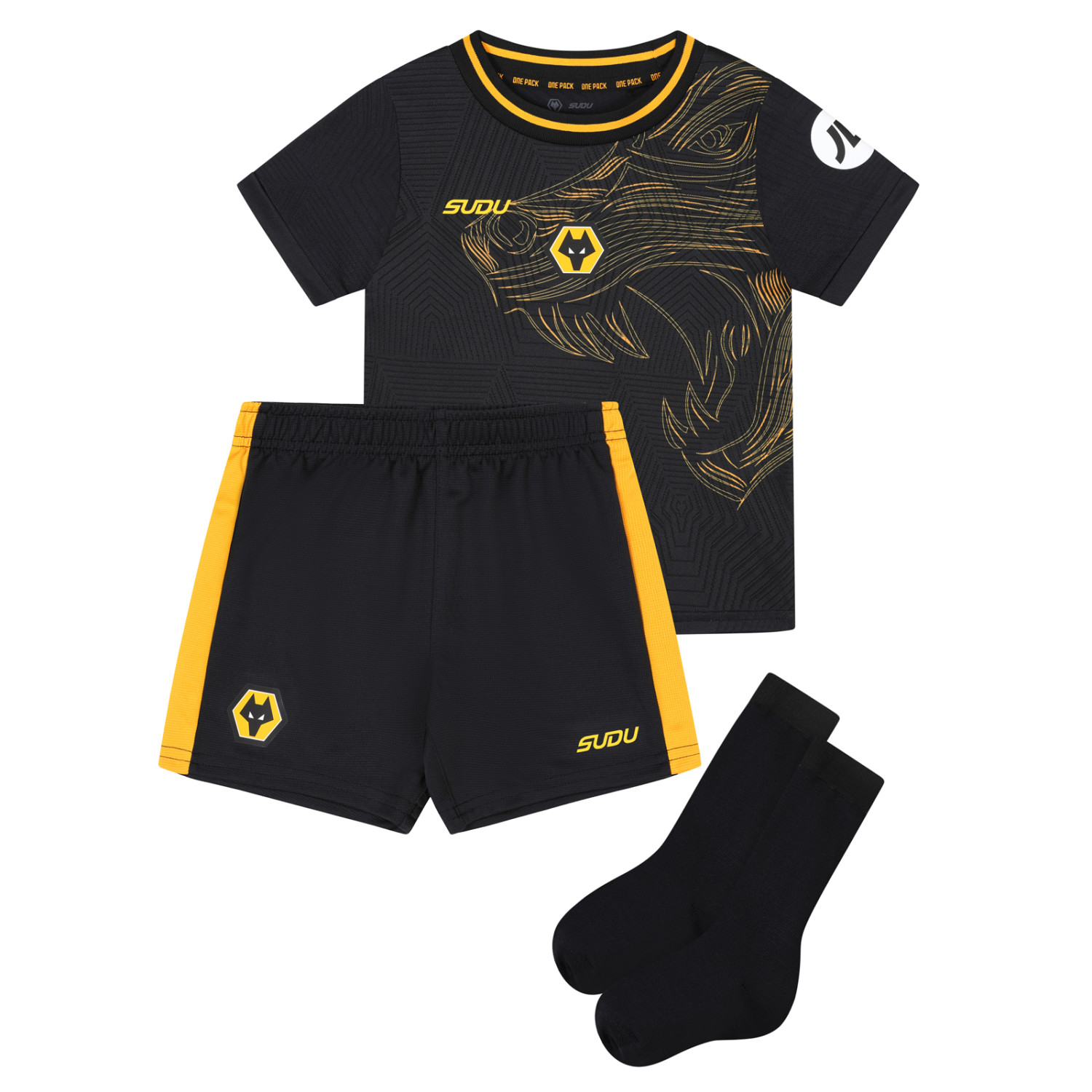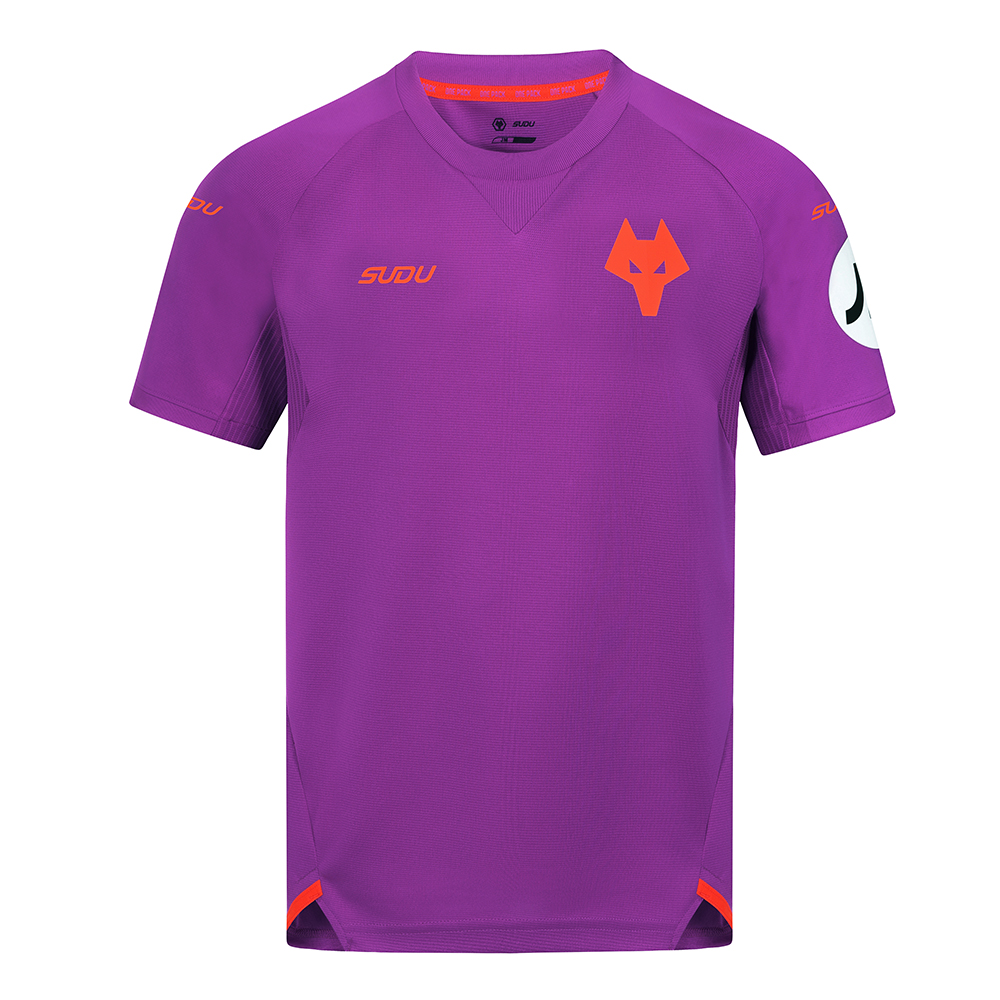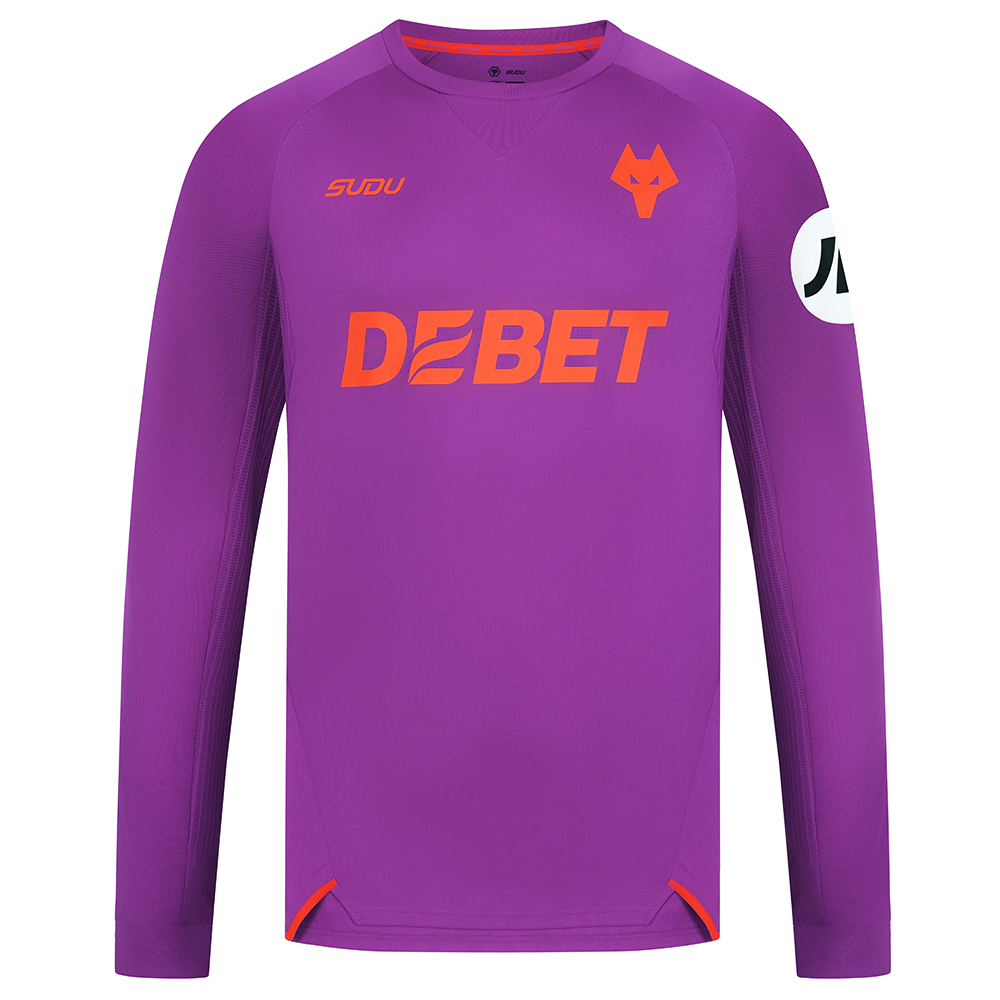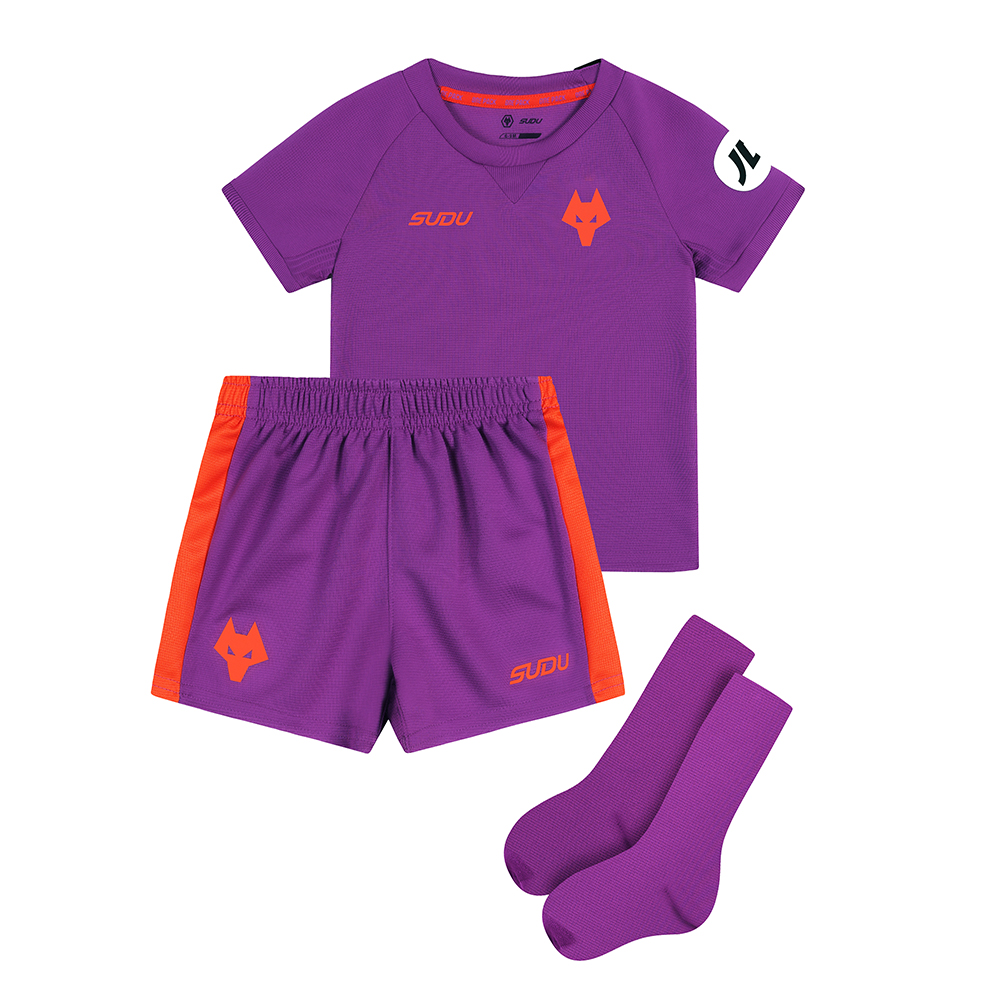Johnny Phillips: Several key senior staff left in recent years. Fans have been asking about the actual structure and it’s probably something for all five of you really. Where does the structure lie in terms of who does what? Jeff, can we start with you?
Jeff Shi: I have to say. The club is at a different stage. If you look at a company or club or whatever, the early stages are different from the later stages, so it’s very natural that people will come in and people will go and, of course, some people may need a new club or a new company to work for. Also from the club’s view, we need more fresh people to come in, because you cannot always rely on all the good people to do all of the jobs, because the club is bigger and bigger now. So it’s very normal. It’s a kind of evolvement. From my personal view, I think we have a better team now than before –bigger team, stronger, so I don’t have any concerns about the people who have left. Of course, I wish them a good future and career, but I am very happy about the people we have now in the club and I think they are stronger.
JP: We heard from Matt and Scott obviously. But, Russell, what’s your role? How would you sum it up?
Russell Jones: Well, as Matt pointed out, I suppose mine and Vinny’s role really is to drive that commercial revenue, to be that big club, so my role is predominantly around growth, it’s around fanbase, developing our story and fanbase all around the world, and looking to commercialise that story through partnerships, through memberships, through media and also through retail and licencing. So very much about growth.
JP: That point you made about fan relationships, that’s interesting, because one of the questions we had, from Joe Ellement, was about Covid. Has that affected the club’s relationship with the supporters?
RJ: I think it’s really tricky, isn’t it? Because it’s created this distance that we’ve never really ever experienced before in football history. What we’ve tried to do is close that by all sorts of digital platforms. So we introduced radio 24/7; we introduced Matchday Live. We’ve introduced a sort of AR portal for anyone that’s seen that. So I do think it’s become a bit more challenging, but we’ve done everything we possibly can to keep that relationship with fans, and obviously we’ll continue to do that. But, on the other side, I think everyone around this table would agree that we can’t wait to see fans back against Manchester United. That’s what football is all about, isn’t it?
JS: But, Johnny, I think maybe one of the things behind the question is about why I don’t come out to speak too much. I understand that, but everything I speak to the public will be read and will be watched by all the people around the world. So sometimes I have to think about what I will say, what I can say. For example, the players, the coach, the staff here, my friends, my competitors, maybe other clubs, they will all listen to me and hear what I will be saying. I am very restricted to what I can say. For example, after a loss, of course I am not happy. But can I say the same as you? I don’t like a player. I cannot say that. It’s like we are a family for the club. I have to look after the internal staff first and sometimes I am afraid what I can say will have a negative impact on our staff. So sometimes you have to be careful about this. So I understand maybe in the past the fans were OK and some of them came out to say some good things to please them. But they don’t know when you say something that is maybe it’s good for you to hear, but maybe it’s better for others to hear. So I have to find the balance. So when you search for all the words I can say, it’s very limited, so that’s the reason why I don’t want to come out to say too much, especially at the moment when emotion is across the whole club. Everything I can say is wrong. Also for all the leadership group, they are the same, because normally, in principle, what they the leadership group can say should be approved by the club because what they say is representing the image or the profile of the club and they are representing the team. So sometimes you come out to say something, and actually the people, the fans, will think the whole club is behind you, so they will not try to distinguish you. What Russell said. What Vinny said. You are all from Wolves. So that’s the reason why we have to be careful and we have to have a proper process to say what we have to say. And I do hope that the fans can understand that. Actually, for me personally, I am quite keen to talk with the fans and so I always receive and reply to the emails from them, but for public speaking, public social media, we have to be careful. Because sometimes it’s not just you feel pleased about some words, actually in the long term, the words will have a bad impact to ourselves.
Vinny Clark: I think that shows where we are in our evolution. We’re a pretty calm organisation; I don’t think we want to rush to speak publicly in moments of panic or times of hardship. I think the way Jeff and us guys work is we don’t speak too often, but we do when we feel it’s appropriate and necessary. And just on the structure side, I think many people see that a couple of key departures took place last year and have never been replaced and there’s the myth that Jeff is sweeping the dressing room and all of that sort of stuff. I’d actually say the opposite is true. I’d say we’ve beefed out the leadership team now, and instead of being three guys, there’s now five of us doing that work. Contrary to what the common misperception is, I think it’s actually quite the opposite.
JP: Reading through all of the 633 questions, there’s a lot of satisfaction with the media channels and the work that has been put out and the content. And also there is a general sense of gratitude for what Fosun have done in terms of a wider sense for the club. Vinny, you touched on that wider beefing out of the leadership team, where does your role fit into that?
VC: I oversee the trading arms of the group, if you like. The retailing operation, ticketing, hospitality, food and beverage and all of that sort of stuff. I work really closely with Russell and Russell’s teams in marketing and media to basically run the club from a commercial operations perspective and make sure we are optimising revenues whilst delivering a great product to our fans.
JP: You mentioned the word ticketing. So if you’re going to cross it, I’ll nod it in. Dave Boddison, Tom Willett and many, many more have said why are you charging £45 a ticket for a dead-rubber against Manchester United when fans haven’t been able to attend for so long?
VC: Firstly, I’d question the dead-rubber element to that question. There’s been some talk this week that it’s going to be a Man United reserve team and it is a dead-rubber. For me, personally, this is a huge moment for the club. Fans haven’t been able to come into our stadium and watch a game of football for over a year; this is not a dead-rubber, it’s a momentous occasion that we’re really excited to be staging and to be welcoming fans back into the stadium. On the pricing side, I get that pricing increases are never celebrated and are never greeted with great warmth, but the reality is – we touched on it earlier in some of the FFP conversations – as a club we’ve got certain ambitions and we have to operate commercially in a way that is befitting of a club that’s the size and the success that we want to reach. My job – and Russell’s is sort of the same – is I’ve got to try and find the right value balance between the fans and the economic success of the club, and I think if I’m being completely honest – and this is probably an unpopular view – in recent years we’ve probably been undervaluing our products and services. I think tickets have been on the cheap side. We underwent a benchmarking exercise recently, which showed that we were sort of 17th/18th in the Premier League in terms of what we charge people to come to the games. And actually, we’ve had three really successful years back in the Premiership and we’ve had a good Europa League run, we’ve reached the knockout phases of that, so we wanted to really realign our prices. And I know that’s difficult for people to maybe accept initially, but what we really want to do is be fair. And we don’t think that the pricing structure that is in place for the Man United game is unfair. I think our most expensive ticket is £45 as the question points out. We benchmarked that and there’s actually eight clubs that are charging more than that for their top-price tickets. So we are somewhere in the middle of that group in terms of the Premier League and what they are charging and realistically is where, at this point in time, we need to be.
JP: But on the other side of that the community that you are in has suffered greatly from the pandemic and you’d be hard-pushed, I think, to make a case for £45 for a lot of paying supporters. How can you answer that?
VC: I understand it’s been a really difficult time for not just the community here, but all over the country and I’m empathetic towards that, of course I am. I think I’d counter by saying the club have done tremendous work over the last 12 months in the community – Feed Our Pack; we’ve called our elderly and vulnerable fans over the last 12 months, given them care calls to make sure they’re OK. Russell can probably list another five or six things that we’ve done that’s really impacted and helped the community that we’re in. But the cold reality is you’ll have seen our recent results for 19/20, we posted a £40 million loss, and this year is probably not going to be much prettier than that, so we’re always trying to find that balance of being fair, making sure the fans are getting good value for what they give us, and for being part of that community, but, equally, we’ve got to look after the football club and we’ve got to try to get parity with the likes of clubs we’re trying to compete with.
JP: Russ, we touched on the dislocation that fans might be feeling at the moment. And Sebastian Wollam has said football is a habit. People might be out of that habit. Will £45 a ticket perhaps not encourage them to return? Do you understand that you could have created a rift with the local population?
RJ: As Vinny said, it’s something we spent a lot of time working through, considering, making sure we believed that it was good value in terms of the rest of the Premier League, benchmarking. I think in terms of what will happen moving forward, obviously take-up of tickets so far has been really, really strong. We believe moving forward that there’s a real appetite to get back inside the stadium and to see the team playing again and we all miss that full house at Molineux. I think, anecdotally, we know other sporting events around the country have sold out in super quick time. So we do believe, internally, there’s a real appetite for football fans to get back inside the stadium.
JP: Is that more a commercial decision though than a moral decision perhaps?
VC: It’s both. Ultimately, it’s both. We always factor in what the societal consequences of our decisions are going to be. But I’ve mentioned the balance of value – if we’re giving the club all of the value from, let’s say, ticketing sales and the fans are getting no value, they’re overpaying and they’re getting nothing out of that and the club are making tons of money off the back of that, that’s an imbalance and that’s unfair. And if we were doing that and the club was getting all of the value and the fans were getting none that would be a failing. Likewise, if the balance was tipped the other way. and the fans were getting probably overvalued for what they were getting and the club were being undervalued in that dynamic, again, that’s a failing. So what we’re always trying to do is find that fair and reasonable sweet spot that gives us, a) what we need to continue to compete as fans expect us to, whilst b) giving the fans what they perceive to be value.
JS: I would that there is a big misconception from the fans. They think that the major revenue source comes from the broadcasting or whatever and so the ticketing revenue is not important. But that’s wrong. When we say the top six or big clubs we want to chase, we want to catch up, the biggest gap is not a broadcasting revenue, it’s the ticketing revenue.
JP: But that’s the size of the stadium, isn’t it?
JS: Yes, but it’s also about the pricing. If you look at the price for Chelsea, for Spurs, for Man United, you can see the huge gap.
JP: But they’re 30/40,000 more fans?
VC: But that gives us a further disadvantage. If you look at Newcastle, for example – 52,000. We could be at the same price as them, but they’re still going to be beating us in that competitive element. And I think Jeff makes a great point. Across Europe, in the big five leagues, matchday revenue is around 16 per cent of a club’s revenue and people do sort of say it’s nothing to the clubs, why do they even bother charging us for tickets, it means nothing. It couldn’t be further from the truth. Because in the Premier League, in that bracket that we are in, the broadcasting revenue and the Premier League distribution is largely the same for a lot of clubs. So where You can really make a difference is in that commercial area that you can control, such as sponsorship, retail ticketing, etc. So it is important and it’s important that we find the right value for our products.
MW: I was just going to say – don’t underestimate the occasion. Having fans back for the first time since the 7th of March 2020, it’s going to be a great occasion for the fans, but it’s probably going to be an even greater occasion for the players. I can’t tell you how much they’ve missed it. Conor is constantly on at me, saying, when are we going to get the fans back? We miss the fans so much. We need fans back in the stadium.
JP: I agree to some extent, I think the players will have a huge lift from it, but I think there’s a significant amount of the fanbase who don’t see this as important because it will be mainly empty and the social distancing is in place and they’re looking to when Molineux can be full again and that’s perhaps another reason why the ticket price is such an issue.
VC: But it’s such a vital step on that journey. We’re never going to go from zero to a full stadium. We were planning as far back as last July to get people in. And do you remember the tiering in December? We were going to get the last seven games in, and it’s ever evolved and changed. As luck would have it, it’s just one game at the end of the season now, which does create a bit of a strange, weird dynamic – you’re going to have fans in for one game. But I think it was important that we recognised that it is a big occasion, and it’s a Premier League fixture against one of the most successful clubs in world football.
MW: And it’s frustrating. Because it is one game, we’ve got red zones, amber zones, that we’re not allowed to move so it’s killed a lot of seats. We’d love to get some more fans in, but because it’s one game, we’re limited to what we can do.
JP: So, Vinny, is this going to be a forerunner to a season-ticket price rise because that’s what a lot of fans have emailed in. I’m sorry if this feels like I’m targeting you!
VC: Not at all. I need to be totally honest and we have to take ownership. I came into the business two years ago and one of the key things in the analysis of where we were as a commercial operation was that we’re probably on the cheap side and we do need to realign if we want to compete at the levels we want to compete at and the fans expect of us. We’re commercially miles away from – I don’t want to use the big six because it’s not in vogue at the moment – but we’re miles away from them. And whilst we never want to be pricing our ticketing so that it’s unaffordable and it’s pricing people out, pricing the working man out – I’m a working-class lad myself. We’re desperate not to do that, and we’re committed not to doing that – but what we do want to do is bring balance and fairness into where we are and to get it to parity in terms of our peers. We’re not looking to overprice fixtures. We’re not looking to make season tickets unaffordable. But we do need to reset and realign where we are. Because, historically, in my opinion, and when we look at benchmarking against the Leicester Citys and the Newcastles of this world who we see as our competitors commercially, we’re behind them.
JP: I understand that. I understand that you have to try to bridge that gap. But there will always be fans priced out; as soon as that £45 ticket is announced, there will be a percentage that you must accept are priced out now.
VC: Affordability is hugely subjective. We’ve discussed this as well. What’s affordable to one person is not affordable to another. I think that, generally, we have to look at the data as well. It is an emotional topic, but we have to see if we’re struggling to sell out the venue at prices we’re setting, then obviously that’s a clear message that we’re overpriced. But, actually, reaction to this United game – and you quote £45 and I must remind you that’s the top price, there are other prices, and our junior prices moving into next year will be really competitive in terms of benchmarking and where we are – but it is what it is for that one game and we have to get there.
JP: You touched on the junior prices. Is that something you’re conscious of, that you can’t let them spiral, if that’s the right word?
VC: They’re our future, aren’t they? I think we understand that, and I think we’re really competitively priced on junior prices. They are the lifeblood of our future. They’re going to be bringing their kids in 20 years’ time so we definitely don’t want to overprice juniors out of the stadium for sure.
JP: A few fans have asked – Stefan Freeman, William Bowen – when all of the information is going to come out about season tickets. When is that?
VC: Well, we’re in a world where things are changing all the time. Yes, I’d love to say this is when season tickets are going to be going on sale. But the reality is, and Matt’s close to these conversations as well, we don’t have full information from the Premier League yet as to what that first game in August is going to look like. We have 22,000 season-ticket holders. We don’t know if we’re going to be bringing more or less than that in August. So until we have that more concrete information from the government, both nationally and locally, as well as the Premier League, we can’t really go out on sale, because what we don’t want to do is what a lot of clubs did last year, which is to go on sale with the season tickets and it causes a lot of headaches when you can’t fulfil your obligations. So as soon as we can announce something we obviously will, but for the time being, we’re waiting on other people to give us the guidance.
MW: I think we’re in the hands of government, so all eyes are going to be on the 21st of June, to see if that is going to be the actual date when everything is relaxed. If it’s not, and social distancing does remain in place, it’s obviously going to affect the capacity, unfortunately.
JP: This is a question for several of you in a way. We’ve had a whole lot of questions in, with everyone with their own individual cases of where their loyalty points haven’t stacked up to the tickets they feel they deserve; others who find it hard to get into away games when that looks a closed shop for the people who go all the time. Some saying there should be a ballot system where you can get fans who just really don’t ever have a chance to come in, where they can enter the ground. There seems to be, to sum it up, a group of fans struggling with the current setup, some feeling excluded, some feeling they maybe deserve more. Russ, do you understand the feelings of the fans and is there anything the club can really do? Will any ticket policy just always be weighted against some section?
RJ: It’s difficult, isn’t it? And we know it’s difficult. I think we all talk about this quite a lot and I spent quite a lot of time talking to our membership manager about this because membership is very much part of the season ticket waiting list and we are really conscious again of the young community Vinny talked about. I, like all of us, walk down to the park and three years ago, they’re all wearing Barcelona and Real Madrid shirts, and you know what? Now, they’re all wearing Wolves shirts. That’s amazing for me as sort of the marketing guy. But then I’m conscious of how now do we bring those people into the stadium when we don’t have that seat availability, so. it’s an ongoing issue for us. I do believe that we do need to make sort of buckets of tickets available to a wider audience, to a ballot. We have now 160 supporter clubs around the world. And Alan, who manages those clubs, as you can probably imagine, is constantly bombarded with the fact that a hundred Belgian Wolves fans want to come over. We just can’t manage those guys. The same with our Danish club who want to come over. Our New York Wolves want to come over. What a great position to be in. Right now, we have to try to manage that as carefully as we can.
VC: And it is difficult because, ultimately, the fanbase we’ve got locally doesn’t go into 31,000. And the same issue happened on a smaller level with the United game. Because we’ve got 22,000 people – that doesn’t go into 4,000. There’s never going to be a way you can do that where everybody says, that’s brilliant. You have to try to find the fairest and most reasonable way, and that’s what we think that we’ve done. But just on that, and going back to your question a little bit, we’re building fan consultation groups now. So Russell pioneered the matchday experience group that we have, and I’m part of, as is Russell. We want to roll that out into other areas. So we want consultation groups on ticketing, on retail, and on those other things, so we can get fan feedback on what they believe is the fairest way, because I can tell you it is really difficult. We throw around countless scenarios of how to do everything and we really do give things serious thought. We don’t do things on a whim, and we are always trying to find the fairest way, and if people are involved and engaged in that process, they can maybe see some of the challenges that we face doing this stuff.
JP: Russ, a lot of members have asked, will they be compensated properly for what happened last season – obviously joining and then not getting any benefits. Most of the members joined just to be eligible for tickets and that went out the window. What can you update us on that front?
RJ: I think there’s a couple of parts to that. First and foremost, there are a number of benefits of being a member. Clearly, ticket priority is one, but there are a number of other benefits. And I think last year when we saw that we weren’t going to be able to offer that ticket priority that we normally do, we gave everybody that had bought a membership a voucher for the store. This year, those loyal people who decided to buy the membership will have a discounted price going into their renewal. We want to look after those people who loyally renewed their membership.
JP: Is this a chance for fans, Jeff, to get on board? Will fans have a big say in this or can they have any say in maybe ways in which you can change the ticketing approach, or change the way they can have access to the club in general?
JS: Five years ago, I remember the first thing for me was the Fans’ Parliament. I attended the Fans’ Parliament maybe more than 10 times, but it’s not working so well, because even if you have 100 people there, they cannot represent the whole group of fans. And sometimes I feel the questions or the advice from them is too simple to me. For example, I want more practical or more smart things for me to change. So for the running of the club, and because we’re doing a full-time job, in general and in principle we have more knowledge than normal fans, because we have spent 24 hours here every day. But if any fan can give me some ideas I didn’t think about or are really, really good for me to put into practice, I will welcome that. But I’m still thinking about some ideas, because I don’t think the Fans’ Parliament worked very well. But I’m trying to talk to colleagues to find a better way. So this is one of the initiatives from me; I want to try and maybe get it directly from the fans, not only a small group of people. So any fan can ask any question to me. Even sometimes if it’s not so sensible, I want to hear at least. It’s a kind of renovation I want to have. Maybe, in future, more things like this will happen. Not only broadcasting, but some calls, some emails, trying to touch the fans directly and listen to them. But from the decision-making from the club, it’s always about the board, about the owner, because the owner is the owner for a reason, right? So they have the right to make the right decision for the club. If they’re wrong owners, bad owners, sooner or later they will be gone. So sometimes trust the owner, trust the board more and they will deliver a good job to you.
JP: This one’s for everyone then. Given all we’ve said, apart from letting fans back into the ground, are there any plans to re-engage supporters? A lot of supporters have felt dislocated, we’ve said that already. They’ve also felt sort of marginalised, maybe from what happened with the Man United ticket situation. Is there a plan to re-engage supporters, a conscious effort that that’s something that needs to be done?
RJ: I think we’re always looking to engage supporters. I don’t think that ever ever stops. Like Vinny says, we run a matchday experience group, for example. And I know there’s always high emotion and tension about things like ticket prices, but sometimes you just have to stop a second and remind people what has happened during the last 12 months. And the impact the club has had on the local community, for example. And I always say this, and I’m sure everybody has heard me say this before, but clubs have one definite purpose, and that’s to make fans proud. That’s it, that’s a football club’s only purpose. And as part of that, the club has obviously run Feed Our Pack. We’ve distributed thousands of pieces of PPE to medical centres, to hospitals. Funnily enough, I sold my house recently and I sold it to a nurse from New Cross and when she found out that I worked for Wolves, she actually got quite emotional remembering what impact Wolves had when we delivered these boxes and boxes of PPE, and I didn’t see that. We’ve delivered pizzas to front-line staff and I could go on about this, but that re-engagement, I don’t think ever stops and I think we’ve all got a responsibility for that, to make sure that we continue that relationship with fans.
JS: But in China because they have no lockdown, there we have organised some fan gatherings for some games. The last game, unfortunately, was for the Burnley game.
JP: You’re saying they’ll never come back!!
JS: They will come back. In Shenzhen, there will be another fans’ gathering for the Man United game. I think there will be more than 100 people there. They enjoy that. Sometimes the fans in Wolverhampton have to understand that we already have a global fanbase. For example, we have several million fans in Mexico. We have a lot of fans in Africa. We have some fans in China. Actually, I have to say, if you talk about the numbers – I’m not talking about the contribution or the loyalty – but if you only talk about the numbers, I think the majority of the fanbase comes from foreign countries now.
JP: But how do you define fanbase? Because you say millions in Mexico – is that the principal club they follow or are Wolves just an overseas secondary club?
JS: They follow us; they follow us on social media. They follow our news. They follow our content.
JP: Not necessarily as the principal club they support though?
RJ: I think that you find that they are.
JS: They are, but, of course, if you talk about the real financial contribution, here is still the core base of course, but sometimes when we look after all of the fans, we cannot only look after the fans here. We have to look after the fans around the world. For example, we are doing something special in China, because in China the fans are different from here. I can tell you that the age group in Chinese fans is quite young. And we have a chat group in We Chat – maybe more than 100/200 people there. They’re mostly 15 years old and they’re talking about, Oh, I cannot watch the game tonight because it’s very late and tomorrow I have to go to school. But here the fans are more like 40s/50s, so it’s different. So we have different strategies for different fans around the world.
JP: We’ll touch on the importance of the global fanbase in a bit and why it is key and why it heads straight back to the first-team, but initially we’ve got to stick with the fanbase we’ve got in the city at the moment. And the stadium is obviously a huge issue. It’s not the supporters’ fault that stadium capacity is what it is. Jeff, can you update us on any plans for development? Everyone is looking at the Steve Bull Stand and thinking that’s an obvious starting point. Where do we sit with this?
JS: Yes, I think there are two options. The first option is to do some refurb, not so much investment, but I think the highest priority is the Steve Bull Stand. Actually, we are planning to do some refurb, maybe not large investment, but trying to make the stadium better. That’s one of the options and I keep talking to try to make that happen sooner or later. The other option is long-term investment. A new stadium at the same location or whatever, but it incurs maybe, I think, at least 300 or 400 million investment. That’s big money to us. Normally, clubs loan money from the banks with a lower interest rate. For example, like Spurs are doing, and I think the interest rate is maybe two or three per cent, and it’s a 20-year loan and you have to pay the interest for every year. But if you calculate it and you think that maybe by the commercial revenue, the ticketing revenue, you can get the money back in 15 years. So, in general, a new stadium, commercial wise or financial wise, is not a very sound project because you pay the money first upfront and then you need a very stable, smooth 15 years to get the money back. Actually, at the beginning, I thought it works in most cases, but the pandemic has given me more negative thinking, because one year like this will break all of the calculations or predictions, one year without any revenue, your costs will be much higher and it will push the financial crisis to a high degree. So now I’m more cautious about that. The key criteria is the interest rate. I think even 0.01 percentage gap will be important. Because it’s 20 years, so I’m trying to look for a very low interest rate. I did consult with the government in Wolverhampton and also I know the bottom lines. Some debt, some loans from the government. They have some guidance or discipline and they cannot do something too low or people will say bad things about the government. Or we can look for the market maybe in the United States, some pension fund they can do or something. So we keep looking for that. But when the interest rate will be low enough depends on the market. It doesn’t depend on us. So we will keep trying to explore that, but at the moment it’s very important.
JP: Is that something the supporters really have to understand, do you feel? That the stadium expansion is really down to the global market. And the banks in particular. And no matter how much they say it needs doing, it needs doing, it needs doing, there comes a point where you just can’t act until the climate is right?
JS: When the moment is right – I mean financially, when the moment is right – then we take the risks like this pandemic into consideration. If we think it is right to do that, we will do that. And it is not to make profit. If it can break-even, then it can work, but now by current calculation, it’s harder to break even. And also if we meet a year like the last year, it will be disastrous. So we have to be careful. Also, if you have any money spare, I think the first priority is the first-team, the starting 11, and even the Academy is ahead of the new stadium.
JP: You’ll be pleased with that, Scott! Going back to the Steve Bull Stand, Russ, there’s a couple of fans who have mentioned a few safety issues. Getting into the Steve Bull Stand now can be a nightmare – up to half-an-hour queues and then the steepness, particularly of the second tier, causes a few issues. There have been talks, can you get rails in? Can you let us know any specific plans?
RJ: As Jeff said, we spent a lot of time looking at every aspect of the stadium, in terms of almost those quick wins. In reality, even quick wins are not quick quick. You’re talking about two- to four-year paybacks. And knocking down stadiums? You’re talking about 20- to 25-year paybacks. So in terms of the Steve Bull Stand specifically, we’ve looked at a number of different renovation ideas. So rather than a complete knock-down, it’s renovation to address a number of different things, but mainly it’s about facility upgrades, because the fans are correct: the facilities are massively outdated when you go into the Steve Bull Stand, I think it’s fair to say, from a hospitality perspective, Vinny can talk more about that, from a turnstile perspective, we’re aware that those queues are outside. So those renovation plans we’ve looked at would involve full changes to concourse, certainly changes to the way that fans access turnstiles, massive upgrades to hospitality facilities. Timing is everything, as Jeff says, but it is absolutely on our radar.
JP: A lot of people said that lockdown would have been a good chance to do stuff. But I think that ignores the fact that you can’t just come up with a new stadium improvement in the space of time with the stadium empty; it’s just not practical.
JS: Johnny, the word is money, finance. It’s about money. Lockdown is a good time maybe for construction, but it’s not good for the money.
JP: What about corner sections of the ground? Are they something that maybe fans think could be done not on the cheap but certainly an option…
RJ: Again, it’s not that cheap if I’m honest. It’s the sort of thing you think you could knock up for 50 grand, but the reality is that it’s not, it’s another zero on that, plus a bit more. Again, it’s another thing that Jeff and I are talking about. The good news is that we have planning for that corner, which fans will know. It’s in our thinking and it would be great to do it when we can.
JP: I think you’ve answered this, but a couple of questions, from Leon James and Craig Lefevre, have talked about would a new location still be on the table or is that out of the question?
JS: No, I think Russell has good done a good job and he proposed to me a good plan. Before that plan, I thought a new location would be possible, but after that plan – I have seen that plan, it’s a very good plan – so I don’t think we should move to another location.
JP: I think most fans would agree, if not entirely. Also you’ve got that city-centre location, which I think is invaluable when you look at other clubs. And talking about that, Lee and Joe Walker have said they want to know if there are any partnerships or developments that you have ideas for, supported by the council or university and the wider area of Wolverhampton, that you can help with regeneration.
RJ: I sit on a couple of boards in the city. Funnily enough, I was on a call with Tim Johnson earlier on today, the chief executive of the council. And I was also on a call after that with Katharine Clough, the external relations at the University of Wolverhampton. So we’re really, really tight with both the council and the university. That development of the Molineux quarter clearly has an overarching interest for all parties. The university in particular are incredibly ambitious in terms of their plans. They’ve recently opened a £100-million Springfield site, which will be the biggest construction campus in all of Europe and they’re opening a screen school, which is sort of a direct partnership with us in terms of some of our esports programmes. So we’re really tight with those guys. And I’ve no doubt that they would be supportive of everything that we’re trying to do. And, as Jeff says, that interest rate is going to be important working with the council so that they can support us if that becomes a funding option.
JP: Vinny, what can be done in terms of your side of the business with the current stadium, because it’s not necessarily geared towards realising the commercial growth you want to?
VC: It’s not. It’s quite an old-school stadium, and everything we do in our teams, we all start with the product. What is the product? And on the hospitality side, specifically in the Steve Bull area, we’re not proud of what’s over there at the moment and we desperately want to change that, and put products and packages in place in hospitality that we can be proud of and fans can enjoy. The reality is commercially it has to work, and if there’s 20-30 year payback on this work, then we have to seriously question whether that’s worth doing. Again, it comes down to it’s a balancing act; there are quick wins, which we can try to bring in – improve our products and improve the value that we’re giving to supporters – but some of the other projects are much longer term.
JP: Back before you arrived here, Jeff, when the Premier League first came about, Wolves were sort of left behind a bit with the ground and it was only when Sir Jack Hayward redeveloped it that they caught up. Do you fear that there’s any sense that that could happen again in a modern era?
JS: Different owners have different views. Of course, I understand that Sir Jack has done a lot of good things for the club, but I think you cannot compare two owners, because they share different backgrounds. And for Fosun and for myself, we always put the team first. When we talk about a club, the stadium is important, but in modern times it’s more about the squad. When you talk about the top clubs the first thing in your mind is not the stadium, the first thing is, in history, the players. So the focus will always be about the first-team. Also, the challenge in the Premier League is so tough now, you can see everything is so challenging. So we have to think about the first-team squad, the Academy, ahead of everything else. But, of course, it’s nice if we have a new stadium. But we have to be patient to wait for the right time. Timing is everything. When the timing is right, I dare to do this. But above that, I’m like the captain of the ship. I have to keep the ship stable, it’s very important. I do not want a shipwreck or anything. Financially, commercially, sporting wise, it should be stable, that’s the most important thing. And people are celebrating the fourth year in the Premier League like it’s something amazing, but to me it’s not. I think we can stay here forever. So if you want to do that, you have to think about the players first, rather than think about a new stadium. I think a lot of cases in the past years in the world, you built a new stadium and then you jumped to League One or the Championship or whatever. So why do this? That’s my reasoning and maybe it’s different from the previous owners, but everyone has their own character, so I just be myself.
VC: And the guys earlier were talking about being creative. We do the same. So we’ve just renegotiated a really exciting long-term partnership, with our catering partner Levy. And as part of that we leveraged in the negotiations that there is a commitment on them to invest in our facilities. So leveraging partner relationships and making sure that the commercial partners that we have at the club are invested in our infrastructure as well is something that we are doing more and more of now.


